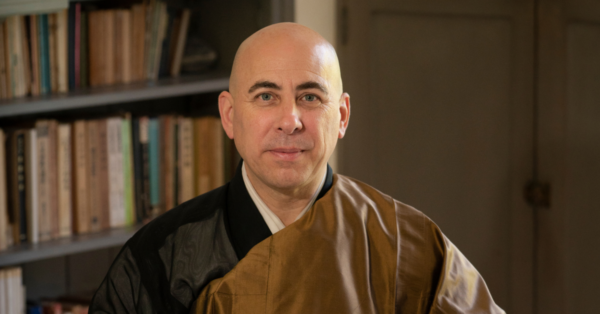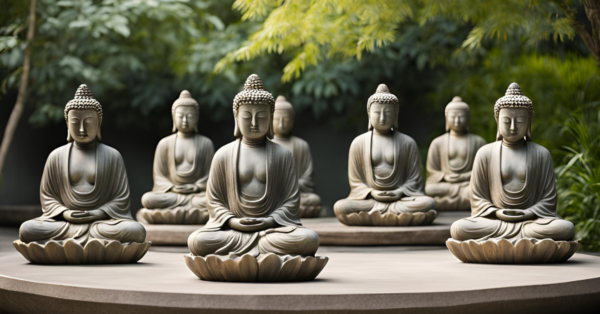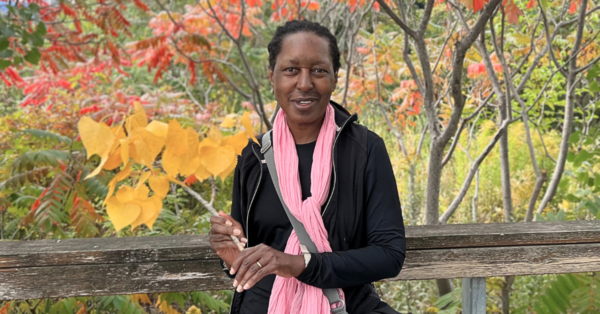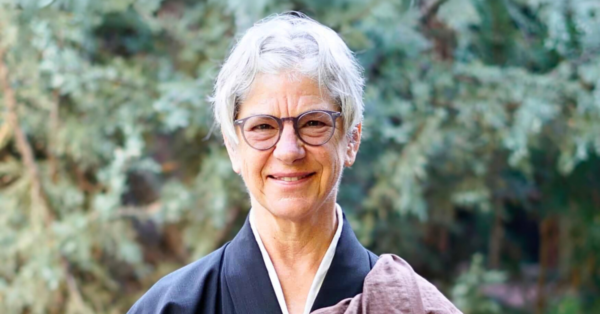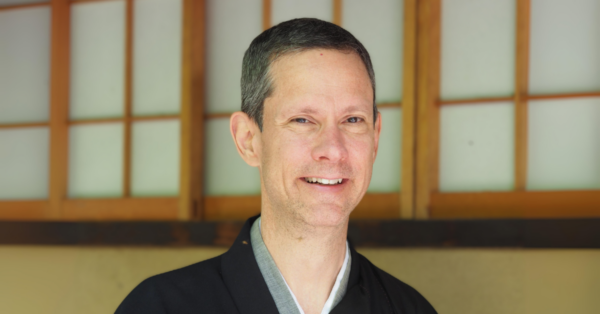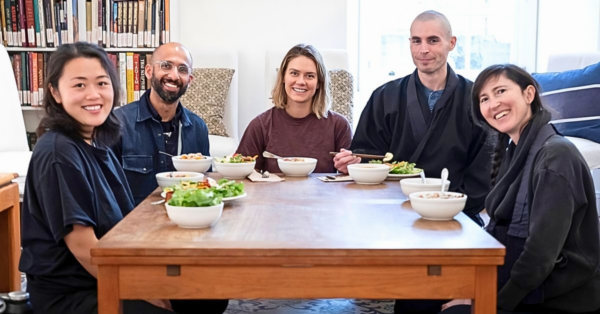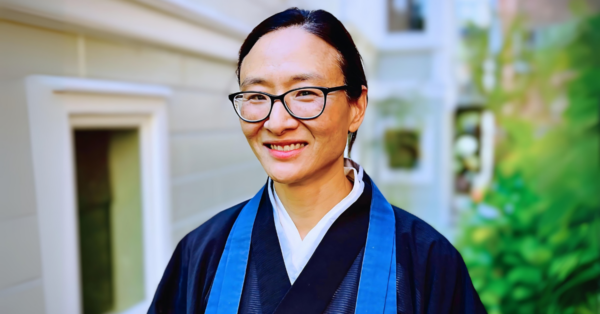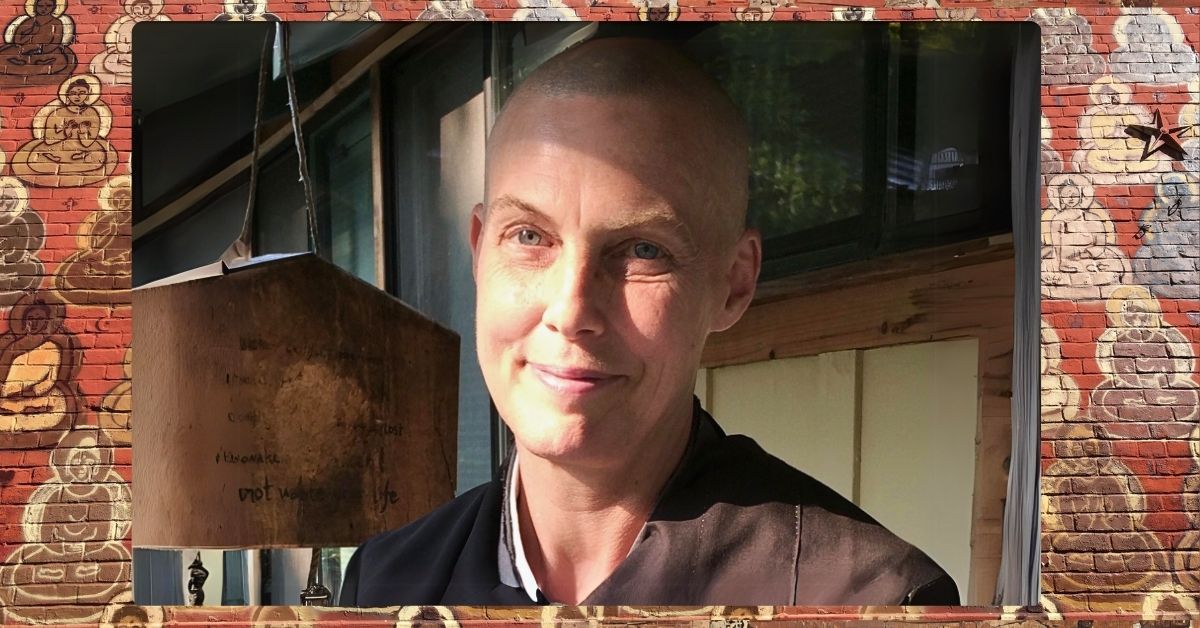
Mural by artist Amanda Giacomini
By Catherine Spaeth
Buddha Nature is sometimes mentioned in the Zen community in an offhand way, as a reference point with little explanation, and with the expectation that there is some common understanding of what it means to us as practitioners of the Way. What are we really referring to when we say “Buddha Nature”?
“Buddha Nature” was first coined in China, as a single word that appeared in translations of Indian sutras. This word stood in for a variety of Indian words which developed over time, each one addressing an aspect of deeply felt human experience. It is a complex history, and in the upcoming online class I’ll be teaching—The Matter of What?! Dogen’s Bussho—we will look at this history with a disposition that draws upon our own experiences. With this in mind, I find it helpful to approach the topic of Buddha Nature with a question: “What is the one taste of true practice?”
This question speaks to a history of what our practice is, and there is an enjoyment in the tasting that is asked of us. The nature of this enjoyment, however, comes with its own cautionary measures. In the Mahaparinirvana Sutra, for example, there are a series of parables to illustrate skillful means with regard to Buddha Nature. In the first parable, there is gold hidden under a woman’s house and all that is needed is for someone to point this out for her to discover her own wealth.
The second parable points to the danger of misconstruing this very wealth. On a diet of mother’s milk a baby becomes ill, and the mother calls the doctor. The doctor prepares a medicine and instructs that the child should not be fed until healed. Out of concern for her child, the mother covers herself in a bitter oil so the child will keep away, allowing the medicine to work.
The child is healed but still perceives the mother as bitter, even though she has washed clean. It’s not until the child realizes that everyone has Buddha Nature that they are able to respond to the Mother’s call to be fed. So many of us have also discovered that our well-being depends upon whether we are able to break free from the attachment to forms that constrain our lives and the lives of others.
Along with the poetry of Dogen’s words, there is a skill that Dogen has in directing the mind beyond critical thinking in the world of form—the mind that wants to grasp Buddha Nature as its own treasure—in order for us to actually be able to taste it. It is in this spirit, from the mouths of the ancestors to ours, that we can ask:
“What is the one taste of true practice?”
The Matter of What?! Dogen’s Bussho with Catherine Spaeth, February 19–April 15, is an eight-week class that is part of the 2024 Spring Dharma Series.


